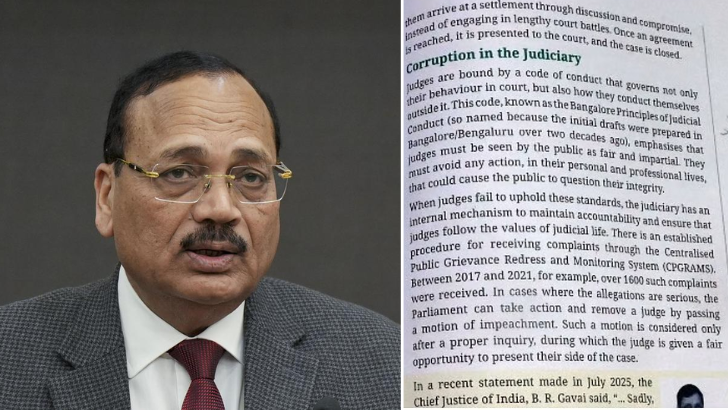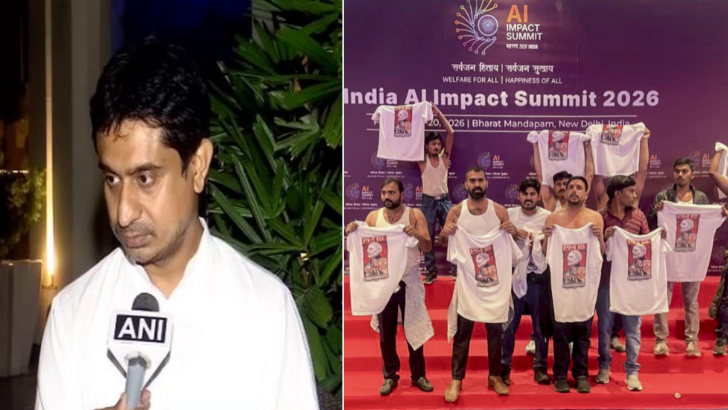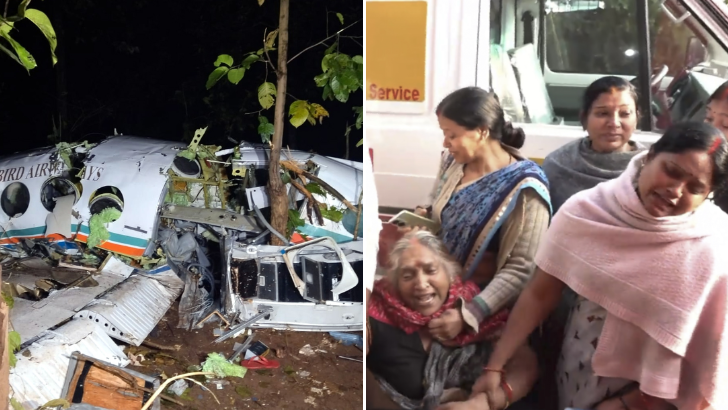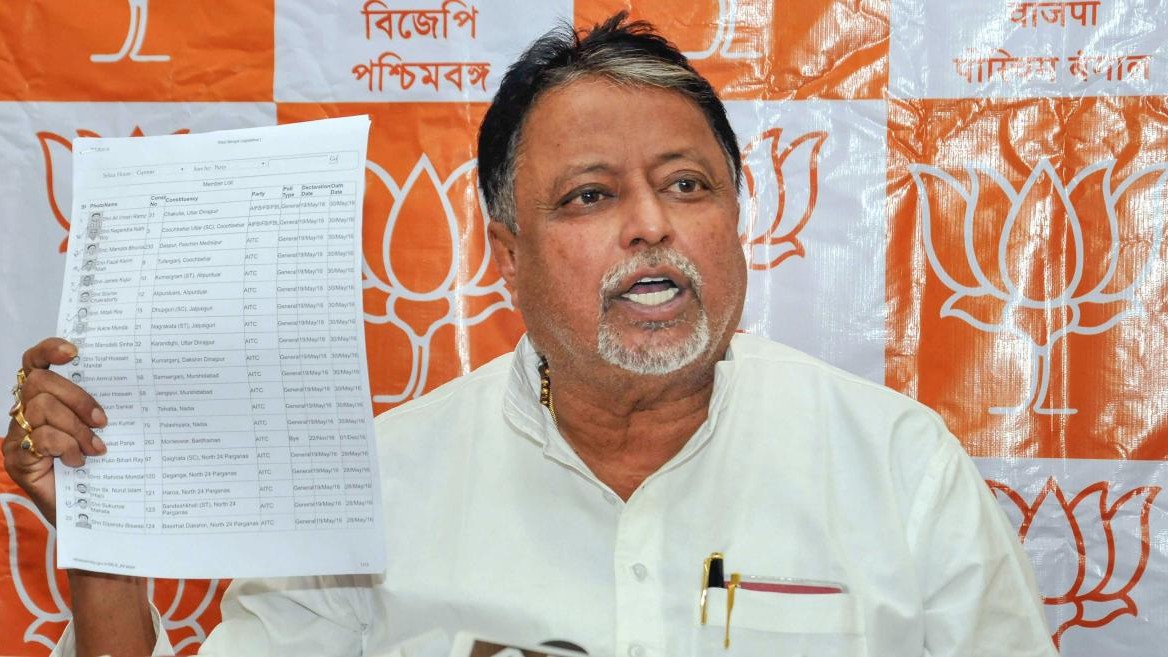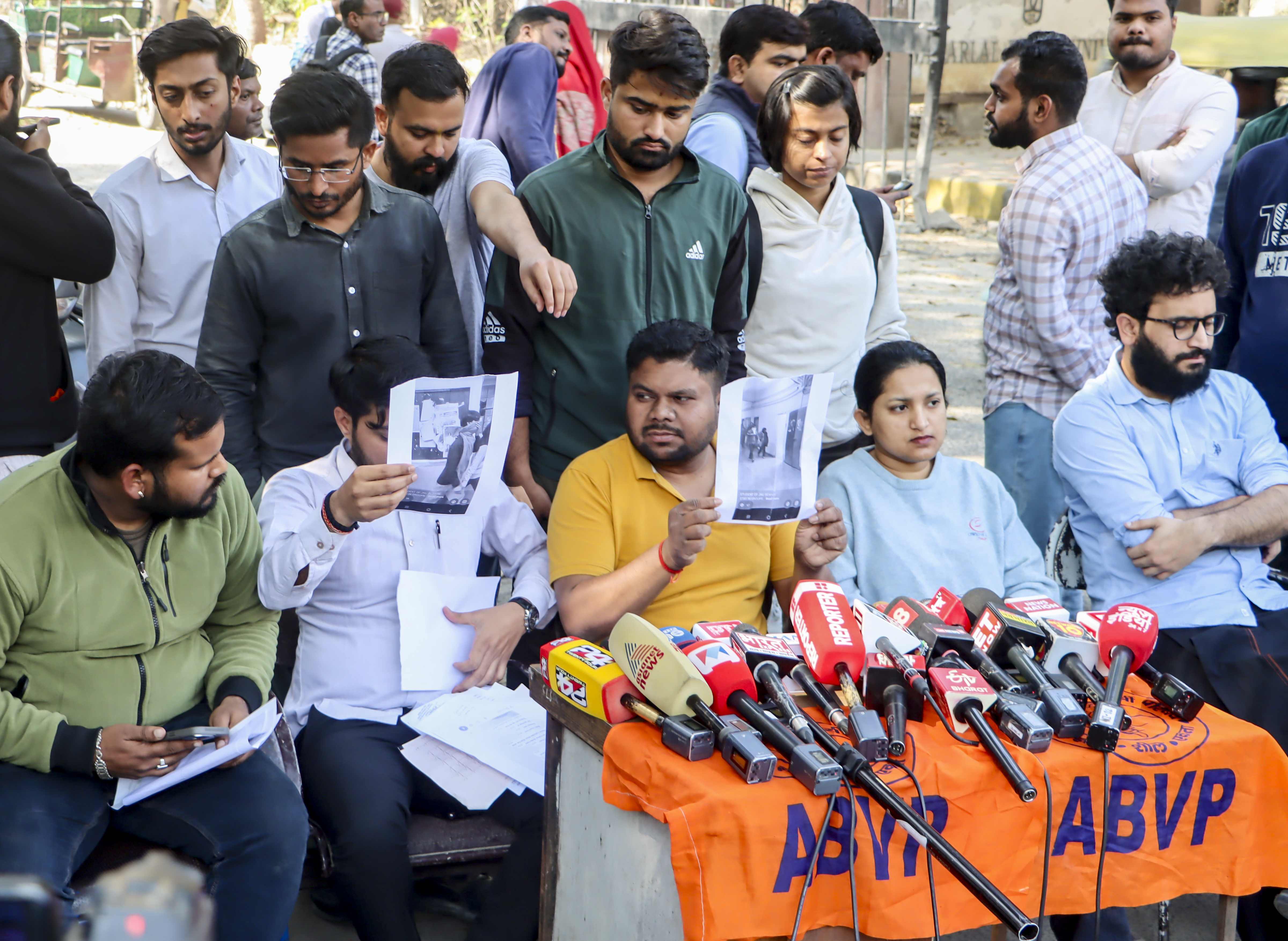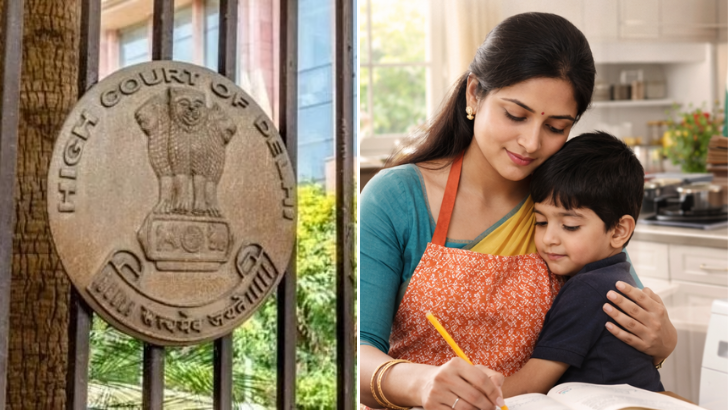Fall in lithium battery prices will boost EV sector: Gadkari
Union Minister Nitin Gadkari highlighted that falling lithium battery prices will make electric vehicles (EVs) more affordable, supporting India’s transition to sustainable transport.
PTI
-
Union Minister Nitin Gadkari addresses during the launch of environmental-friendly electric bicycles, in Thane, Monday. (PTI)
Mumbai/Thane, 1 April
Union minister Nitin Gadkari has said reduction in the cost of lithium batteries would significantly lower the price of electric vehicles (EVs), making them more affordable for consumers.
Pollution is India's biggest challenge and the transport sector is a major contributor, Gadkari on Monday said, stressing the urgent need to transition from fossil fuels to alternative energy sources.
The Union minister for road transport and highways asserted the ongoing advancements in battery technology were key to India's transition to sustainable transport.
He said India's dependence on fossil fuels is both an economic burden, as Rs 22 lakh crore is spent annually on fuel imports, and an environmental hazard, making clean energy adoption crucial for the nation's progress.
Speaking at the launch of an eco-friendly electric cycle in Thane, the minister said cycling needs to be promoted as a sustainable urban transport option in view of increasing urbanisation.
The rapid growth of India's automobile sector has surpassed Japan to become the third-largest globally since 2014, Gadkari said.
By 2030, India will be the world leader in EV production, significantly impacting the global auto market, he said.
Gadkari credited the sharp decline in lithium-ion battery prices (now at USD 100 per kWh) for making EVs more affordable and bringing them closer to price parity with traditional fuel-powered vehicles.
"The price of lithium, which was USD 150 per kilowatt few years ago, has now come down to nearly USD 100. Once it decreases further, the cost of electric vehicles will come down as well, making them more affordable for the masses," he said.
"Pollution is our country's biggest challenge, and a major part of it comes from the transport sector," Gadkari said, adding the shift to electric and alternative fuels is not just an environmental necessity but also an economic imperative.
He reiterated the importance of battery-operated vehicles in India's quest for eco-friendly and cost-effective transportation solutions.
"Research is going on in India on new battery technologies, including semi-conductors, lithium-ion, zinc-ion, sodium-ion and aluminium-ion chemistries," he said.
The minister also stressed the growing international demand for Indian-made electric two-wheelers which is a strong export opportunity that could boost the economy and improve India's trade balance.
"Fifty per cent of India's two-wheelers are now being exported, and we are gaining more from exports than the domestic market," he said, recalling his recent visit to Ludhiana in Punjab to inaugurate a plant for Hero.
"The conventional two-wheeler manufacturers like Bajaj and TVS have produced vehicles having a range of 125 km in one charge. Youth from Lucknow and Kanpur cities have started manufacturing bikes with 60 km range," the minister pointed out while citing a study that indicated a bike generally travels maximum 24-26 km per day.
"Another key area of focus is biofuels," Gadkari said referring to the government's initiatives in converting agricultural waste into biofuels, including bio-CNG and bio-aviation fuel, thereby transforming farmers into energy providers.
This shift would not only enhance rural incomes but also reduce pollution and decrease fuel import costs, he added.
"Farmers will no longer be just food providers- they will be energy providers too," Gadkari said.
The government's policy focused on being "import substitute, cost-effective, pollution-free, and indigenous", he said.
The minister also said he is championing the idea of converting rice straw into biofuel, which will provide an alternate fuel and another source of income for farmers.
"Farmers from Haryana burn the rice stock and it adds to the air pollution. The bio-fuel will put a check to it up to some extent. We have initiated 400 projects converting rice straw into biofuels, with 60 already operational," he said.
The minister also called for promoting cycling as a sustainable urban transport option.
"With increasing urbanisation, dedicated cycling infrastructure is needed to encourage environmentally friendly travel while improving road safety and decongesting cities," he said.
"By creating a supportive ecosystem for innovation and competition, India has become an attractive hub for EV manufacturing, alternative fuels and green mobility solutions," he added.
Gadkari said India is committed to reducing pollution, lowering import costs, and fostering economic growth through green technologies.
"With a strong push for electric vehicles, biofuels and urban cycling infrastructure, India is poised to lead the global transition to sustainable transport solutions," he said.
Commenting on the evolving electric vehicle industry, Gadkari recalled how his earlier discussions on electric cars and e-bikes were met with scepticism. "When I spoke about electric cars and e-bikes in the past, people did not believe me," he said.
However, he expressed confidence over recent advancements, including the inauguration of hydrogen cell-operated trucks by Tata.
"The combination of cutting-edge technology, young engineering talent and agricultural innovation will ensure India remains competitive in the evolving global landscape," he added.
Leave a Reply
Your email address will not be published. Required fields are marked *








.png)



